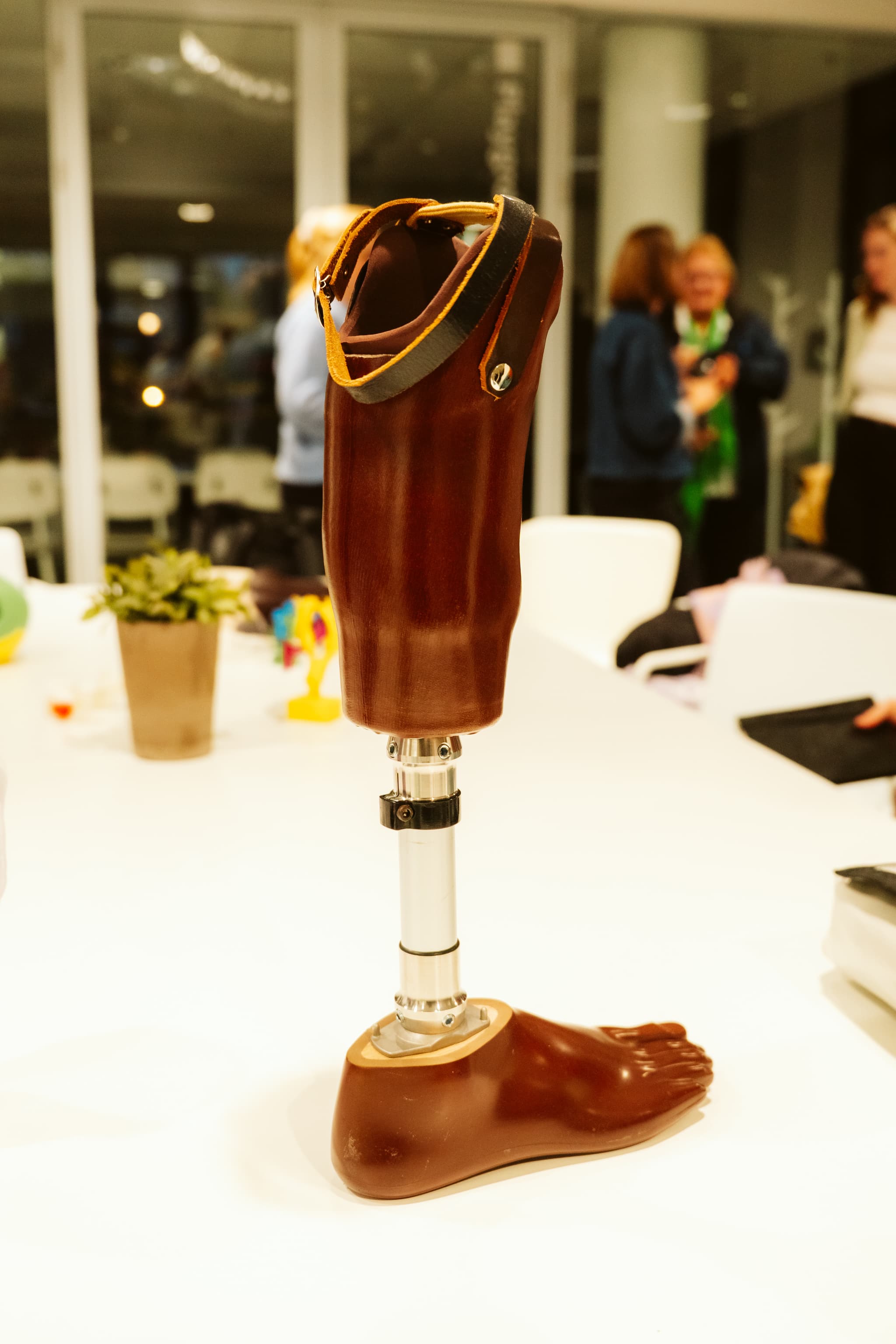A glimpse into Radboudumc shows: AI is much more than just hype
During a press trip about AI in healthcare, reporter Elcke Vels was given an exclusive look inside Radboudumc.
Published on November 20, 2025

Our DATA+ expert and Editor-in-Chief, Elcke Vels, explores AI, cyber security, and Dutch innovation. Her "What if..." column imagines bold scenarios beyond the norm.
An AI system scans ultrasounds to identify risks during pregnancy. Another system assists in the design of prosthetics. These are just a few examples of how AI has radically changed healthcare in recent years. During a New Dutch press trip, I was given an exclusive look inside Radboudumc. Startups, spinoffs, a radiologist, and other experts spoke candidly about their work with AI. They discussed not only the successes, but also the moments when the technology falls short. “An AI model performed worse than a novice radiologist,” says radiologist Merel Huisman.
Newspaper headlines, TV programs, conversations with friends and colleagues. These days, I hear so much about AI that, to be honest, it doesn't always have the same impact anymore. But at Radboudumc, it all became very real. There was a prosthetic leg on the table. And we were shown a video of AI marking a narrowing in a blood vessel. I visited Nijmegen together with fellow journalists from the Netherlands and abroad. The trip was organized by the New Dutch initiative, a collaboration between RVO, the Netherlands Board of Tourism & Conventions, and 16 Dutch regions.
The BabyChecker
Whether it's early-stage research or AI systems that are already in full use, AI is everywhere at the university medical center, says Louise Hoppel, Community Manager Data & AI. She mentions an example that catches my attention: the BabyChecker. This is an affordable and portable solution for performing ultrasounds using a smartphone. The solution is already in active use, while research and development continue. More than 200 healthcare workers from 12 countries have already performed over 9,000 scans. This is happening not only in the Netherlands, but also in Ghana, Kenya, and Malawi, among other countries.
AI in radiology: successes and failures
Then it's radiologist Merel Huisman's turn. “I spend 75% of my time on cardiac and pulmonary radiology. The rest of my time is devoted to AI research, education, and governance,” she says.
She explains that as a radiologist, she views about 200 images every day. With the current AI software, a heat map appears on each image, showing any abnormalities. AI is already useful in various cases, according to the radiologist. “For example, as a second assessment of mammograms, or in detecting bone fractures.”
But, to be fair, AI does not always perform well in radiology. Huisman discusses a 2023 study on the effectiveness of an AI model in detecting strokes. “The promised accuracy was 88%. But the AI model performed worse than a novice radiologist. People love success stories, but this is not one.” The project had to be discontinued. In short, the promises surrounding AI cannot always be fulfilled.
3D-printed prostheses
In a room next door, we are given a presentation on AI in the 3D Lab: one of the largest 3D printing labs in the hospital world. This department of Radboudumc collaborates with Masanga Hospital in Sierra Leone, for example. There, 3D-printed prostheses are used. Prostheses are designed and printed based on a scan of a stump. The most innovative part of the software is the implementation of AI to optimize the fit.
The lab also uses AI to make facial prostheses, for example. AI analyzes faces and automatically recognizes the important parts of the face—something that previously took a lot of time and experience.

Numerous other startups
Finally, a number of medtech startups are given two minutes to show how they use AI. Thirona maps the lungs, which is necessary for complex procedures. CARA Lab helps cardiologists decide whether a patient needs a stent. The lab uses AI to examine the arteries. This allows them to predict which narrowings are dangerous. The video showing how AI analyzes the blood vessels makes a big impression on me.
AI: more than just hype
In recent weeks, I have read many articles about AI, often suggesting that it is mainly hype. I can well imagine that not all AI companies that have sprung up like mushrooms in recent years will actually survive. But as I drove home after my visit to Radboudumc and thought about what I had seen, I realized something: I don't think AI is hype. The technology is advancing so rapidly that I can hardly imagine what the world will look like in five years – and how AI will change our lives by then.
